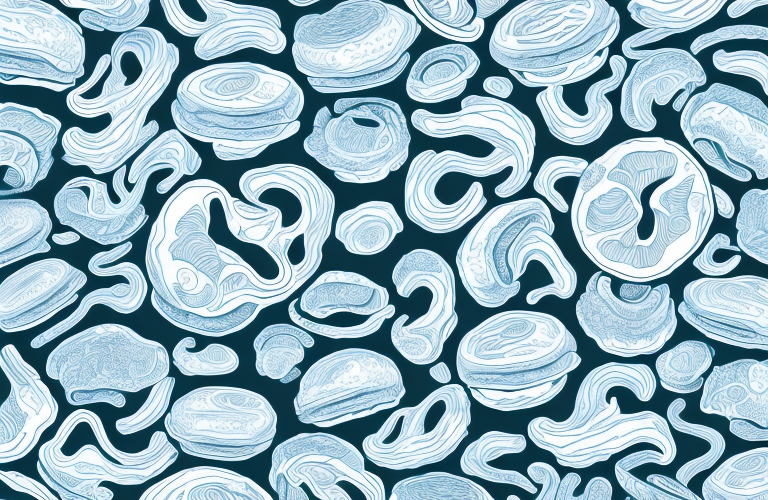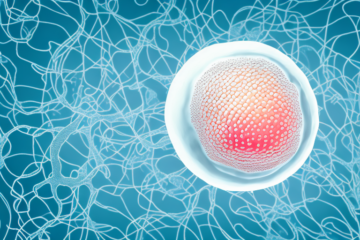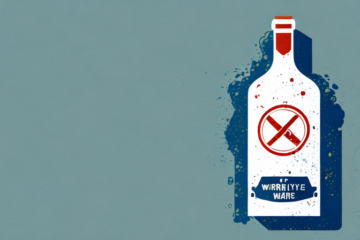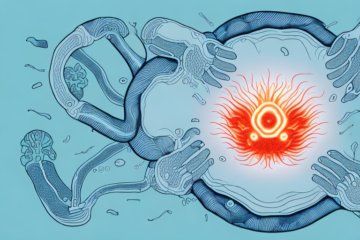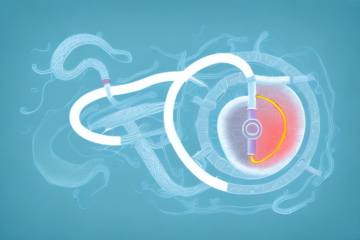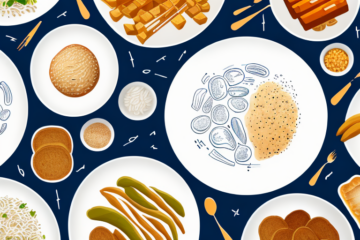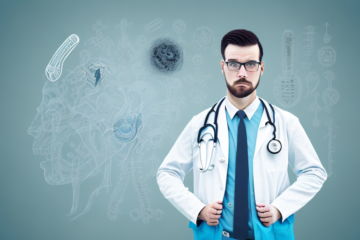Fecal impaction is a condition where fecal matter becomes hardened and impacted in the colon or rectum. It is a potentially serious condition that can lead to a variety of complications if left untreated. In this article, we will discuss the causes, symptoms, diagnosis, treatment options, prevention strategies, coping mechanisms, and support resources for fecal impaction.
What is Fecal Impaction and How Does it Occur?
Fecal impaction occurs when waste material (feces) accumulates in the rectum and colon. In some cases, the feces become so hard and dry that they cannot be expelled from the body naturally. This can lead to a blockage in the colon and rectum, preventing the passage of feces and causing a range of health problems.
Some common causes of fecal impaction include a low-fiber diet, dehydration, lack of physical activity, certain medications, and medical conditions such as irritable bowel syndrome (IBS) and Parkinson’s disease. Symptoms of fecal impaction may include abdominal pain, bloating, constipation, and difficulty passing stool. If left untreated, fecal impaction can lead to more serious complications such as bowel obstruction and perforation, which can be life-threatening.
Symptoms of Fecal Impaction: How to Identify this Condition
Some of the symptoms of fecal impaction include abdominal pain, bloating, nausea, vomiting, constipation, diarrhea, and loss of appetite. Additionally, patients may experience a sensation of incomplete evacuation even after a bowel movement. In severe cases, fecal impaction can lead to rectal bleeding, infection, and dehydration.
It is important to note that fecal impaction can occur in individuals of all ages, but it is more common in older adults and those with certain medical conditions such as Parkinson’s disease, multiple sclerosis, or spinal cord injuries. It can also be caused by certain medications, such as opioids and anticholinergics. If you experience any of the symptoms mentioned above, it is important to seek medical attention as soon as possible to prevent further complications.
Causes of Fecal Impaction: Why Does it Happen?
There are several factors that can contribute to the development of fecal impaction. Some of the most common causes include poor diet, dehydration, lack of exercise, medication side effects, conditions that affect the muscles in the digestive system, and neurological disorders that affect the nerves that control bowel movements.
Poor diet is a major contributor to fecal impaction. A diet that is low in fiber and high in processed foods can lead to constipation, which can eventually result in fecal impaction. Additionally, not drinking enough water can also contribute to constipation and fecal impaction.
Another factor that can contribute to fecal impaction is a lack of physical activity. Exercise helps to stimulate the muscles in the digestive system, which can help to move stool through the intestines. Without regular exercise, stool can become stagnant and lead to impaction.
Complications of Fecal Impaction: What Happens if Left Untreated?
If left untreated, fecal impaction can cause a variety of health problems. These include bowel obstruction, rectal prolapse, hemorrhoids, rectal ulcers, and even intestinal perforation. Additionally, patients may develop bacterial infections, sepsis, and other serious conditions if fecal impaction is left unchecked.
It is important to note that fecal impaction can also lead to psychological distress and a decreased quality of life. Patients may experience embarrassment, shame, and social isolation due to their condition. They may also have difficulty performing daily activities and may require assistance with personal hygiene. Seeking prompt medical attention and treatment can help prevent these complications and improve overall well-being.
Diagnosis of Fecal Impaction: How is it Identified?
Doctors will typically perform a physical exam and take a medical history to diagnose fecal impaction. They may also recommend imaging tests like an X-ray, CT scan, or MRI to get a better view of the colon and rectum. Additionally, blood tests and stool samples may be taken to rule out other potential causes of symptoms.
In some cases, doctors may also perform a digital rectal exam, where they insert a gloved finger into the rectum to feel for any hard masses of stool. This can help confirm the diagnosis of fecal impaction and determine the severity of the condition.
If left untreated, fecal impaction can lead to serious complications such as bowel obstruction, perforation, and infection. Therefore, it is important to seek medical attention if you experience symptoms such as abdominal pain, bloating, constipation, or difficulty passing stool.
Treatment Options for Fecal Impaction: Medications and Procedures
The treatment options for fecal impaction depend on the severity of the condition. In mild cases, patients may be advised to increase their fiber and fluid intake, use laxatives or stool softeners, and engage in regular exercise. In more severe cases, doctors may recommend enemas, manual disimpaction, or surgery to remove the blockage.
It is important to note that fecal impaction can be prevented by maintaining a healthy diet and lifestyle. Eating a diet rich in fiber, drinking plenty of water, and exercising regularly can help prevent constipation and the buildup of fecal matter in the colon. Additionally, it is important to seek medical attention if symptoms of fecal impaction persist, as untreated cases can lead to serious complications such as bowel obstruction or perforation.
Prevention of Fecal Impaction: Tips and Strategies to Avoid this Condition
There are several strategies that patients can use to prevent fecal impaction. These include eating a high-fiber diet, drinking plenty of fluids, engaging in regular exercise, and avoiding medication side effects that can cause constipation. Additionally, patients should maintain regular bowel habits and seek medical attention if they experience any unusual symptoms.
Another effective strategy to prevent fecal impaction is to establish a regular bowel routine. This means setting aside a specific time each day to use the bathroom, even if you don’t feel the urge to go. This can help train your body to have regular bowel movements and prevent constipation.
In some cases, patients may need to use laxatives or stool softeners to prevent fecal impaction. However, it is important to consult with a healthcare provider before using these medications, as they can have side effects and may interact with other medications.
Lifestyle Changes to Manage and Treat Fecal Impaction: Diet, Exercise, and More
Patients with fecal impaction will often need to make lifestyle changes to manage their condition. This may involve following a specialized diet, engaging in regular exercise, and taking medications or supplements to promote regular bowel movements. Additionally, patients may benefit from pelvic floor exercises and other forms of therapy to improve muscle function in the bowel.
It is important for patients with fecal impaction to stay hydrated by drinking plenty of water and other fluids. Dehydration can worsen constipation and make it more difficult to pass stool. Patients should also avoid foods that are high in fat and low in fiber, as these can contribute to constipation. Instead, they should focus on eating a diet rich in fruits, vegetables, and whole grains, which can help promote regular bowel movements.
Coping with Fecal Impaction: Support and Resources for Those Affected by This Condition
Living with fecal impaction can be challenging, both physically and emotionally. Patients may experience distress, embarrassment, and a decreased quality of life due to their condition. Fortunately, there are support resources available, such as patient advocacy groups, counseling services, and medical professionals who specialize in digestive health. With proper treatment and support, patients can manage and overcome fecal impaction.
In conclusion, fecal impaction is a serious condition that can cause significant health problems if left untreated. Patients who experience symptoms associated with fecal impaction should seek medical attention promptly to receive a diagnosis and appropriate treatment. With proper care and attention, fecal impaction can be managed successfully, allowing patients to enjoy a healthy and active life.
It is important for patients with fecal impaction to understand the causes of their condition and how to prevent it from recurring. Some common causes of fecal impaction include a low-fiber diet, dehydration, and certain medications. Patients can work with their healthcare provider to develop a plan to prevent future episodes of fecal impaction, which may include dietary changes, increased fluid intake, and regular exercise.
Additionally, patients may benefit from alternative therapies, such as acupuncture or massage, to help manage symptoms and improve overall well-being. It is important for patients to explore all available options and work with their healthcare team to develop a comprehensive treatment plan that addresses their individual needs and goals.

